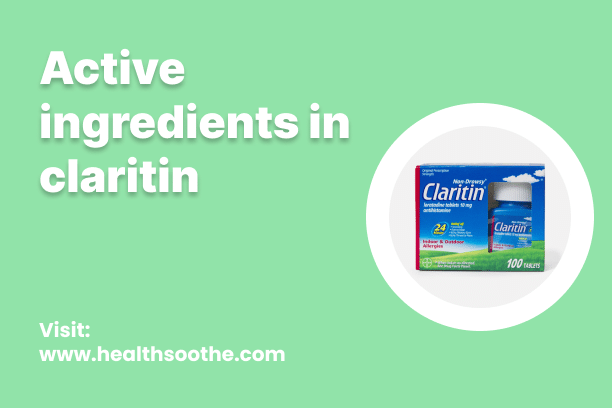Folic acid, a synthetic version of folate, a naturally occurring B vitamin, is added to supplements and fortified foods by manufacturers due to its role in red blood cell production and other health benefits.
Folic acid, a B vitamin present in various supplements and fortified foods, is a synthetic variant of folate essential for cell generation and DNA synthesis in the body. Its significance extends to normal growth and development across the lifespan.
The intake of folic acid is particularly crucial prior to and during pregnancy as it plays a vital role in the proper organ formation of the developing fetus.
Studies indicate that consuming folic acid before conception can help reduce the risk of birth defects, including severe neural tube abnormalities such as spina bifida, rare instances of encephalocele, and anencephaly.
What are the health benefits of taking folic acid during pregnancy?
About 3,000 infants are born with neural tube defects annually in the United States. Typically, the neural tube transforms into the spinal cord and brain within 28 days after conception. When the neural tube fails to close correctly, neural tube defects arise. Anencephaly, characterized by incomplete brain development, is fatal for affected infants.
Babies born with spina bifida or encephalocele often require multiple surgeries and may experience paralysis and enduring disabilities. According to a 2015 review, maternal folic acid supplementation significantly reduces the risk of congenital heart defects, affecting 8 out of every 1,000 births. These defects result from abnormal heart or blood vessel development before birth, potentially affecting the heart’s interior walls, valves, arteries, or veins.
Moreover, research indicates that early pregnancy folic acid supplementation can help prevent cleft lip and cleft palate, occurring if mouth and lip structures fail to fuse properly during the initial 6 to 10 weeks of gestation. Corrective surgeries are typically necessary to address these conditions.
Read Also: 6 Foods That Ease The Symptoms Of Acid Reflux
How much folic acid do you need?
According to The American College of Obstetricians and Gynecologists, all expectant mothers should aim for a minimum intake of 600 micrograms (mcg) of folic acid daily, a quantity commonly found in most prenatal vitamins.
Delaying folic acid intake until pregnancy confirmation might not be timely enough, as many women remain unaware of their pregnancy until 6 weeks or later after conception. Neural tube defects typically develop within the initial month of pregnancy, often before pregnancy awareness.
To ensure adequate folic acid levels for neural tube defect prevention, the CDC advises women intending to conceive or of childbearing age to consume 400 mcg of folic acid daily.
For individuals who have previously delivered a child with a neural tube defect, higher folic acid doses may be necessary in the months preceding subsequent pregnancies and during the initial pregnancy stages. Consultation with a healthcare professional can determine the appropriate dosage.
Additionally, increased folic acid doses may be warranted if you:
- Have kidney disease and undergo dialysis.
- Are affected by sickle cell disease.
- Have liver disease.
- Consume more than one alcoholic beverage daily.
- Take medications for epilepsy, type 2 diabetes, lupus, psoriasis, rheumatoid arthritis, asthma, or inflammatory bowel disease.
Pros and Cons of folic acid
Pros:
- Prevention of Neural Tube Defects
- Reduced Risk of Other Birth Defects
- Supports Cell Division and Growth
- Maternal Health Benefits
Cons:
- Potential Masking of Vitamin B12 Deficiency
- Increased Cancer Risk in Some Cases
- Possible Adverse Effects
- Interaction with Medications
Differences Between folic acid and omeprazole
Folic Acid:
Folic acid is a synthetic form of folate, a B-vitamin that is essential for various bodily functions, including DNA synthesis, cell division, and red blood cell formation. It is commonly used as a dietary supplement to prevent folate deficiency and related health issues, particularly during pregnancy.
Omeprazole:
Omeprazole is a proton pump inhibitor (PPI) medication used to reduce stomach acid production. It is prescribed to treat conditions such as gastroesophageal reflux disease (GERD), peptic ulcer disease, and Zollinger-Ellison syndrome.
Alternative to folic acid
Fruits:
- Citrus fruits: Oranges, grapefruits, and their juices are good sources of folate.
- Avocado: Avocados contain folate and are a nutritious addition to salads, sandwiches, and smoothies.
Side Effects
When administered orally, folic acid is generally considered safe for most individuals at doses not exceeding 1 mg per day. However, doses exceeding 1 mg daily may pose risks, potentially leading to stomach upset, nausea, diarrhea, irritability, confusion, behavioral changes, skin reactions, seizures, and other adverse effects.
Another variant of folic acid, L-5-methyltetrahydrofolate (L-5-MTHF), is also available in supplements. This form of folic acid is likely safe for most individuals when consumed in doses of up to approximately 400 mcg daily.
Concerns have been raised regarding the potential serious side effects of prolonged excessive folic acid intake. Some studies suggest that daily folic acid doses ranging from 0.8 to 1.2 mg may elevate the risk of cancer or exacerbate heart problems, potentially increasing the likelihood of heart attacks.
Who should take folic acid?
While folate deficiency is uncommon in the United States due to dietary sources, certain individuals can still benefit from folic acid supplementation.
- Pregnant Individuals: Folic acid is crucial for embryonic spinal cord and neural tube formation, reducing the risk of irregularities like spina bifida and anencephaly. It may also lower the risks of preterm birth, heart irregularities, and cleft palate. The Office on Women’s Health recommends 400–800 micrograms (mcg) of folic acid or L-5-Methyltetrahydrofolate per day for those who are or might become pregnant. Individuals with spina bifida or a family history of neural tube irregularities should aim for 4,000 mcg daily, while breastfeeding individuals should aim for around 500 mcg daily. The addition of folic acid to food by the FDA since 1998 has contributed to a reduction in babies born with neural tube irregularities.
- Individuals with Mood Disorders: Low folate levels may increase the likelihood of depression, with up to 30% of severely depressed patients showing folate deficiency. Some research suggests an association between low serum folate levels and increased suicidal behavior in depressive disorders. However, the effectiveness of folic acid supplements in improving depression symptoms remains uncertain, necessitating further research.
- Autism Spectrum Disorder (ASD): Early pregnancy folic acid supplementation may potentially reduce the risk of ASD development in offspring, although research findings are conflicting. While some studies suggest a decreased risk associated with sufficient folic acid intake, others indicate a potential association between high folate levels during pregnancy and ASD development. Further research is needed to clarify the role of folic acid in this context.
- Individuals with Rheumatoid Arthritis: Folic acid supplements may be used alongside methotrexate treatment for rheumatoid arthritis to alleviate gastrointestinal side effects. Studies suggest that folic acid supplementation can reduce these symptoms by approximately 79%.








